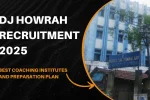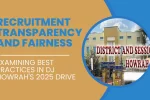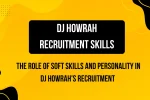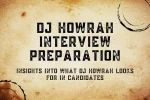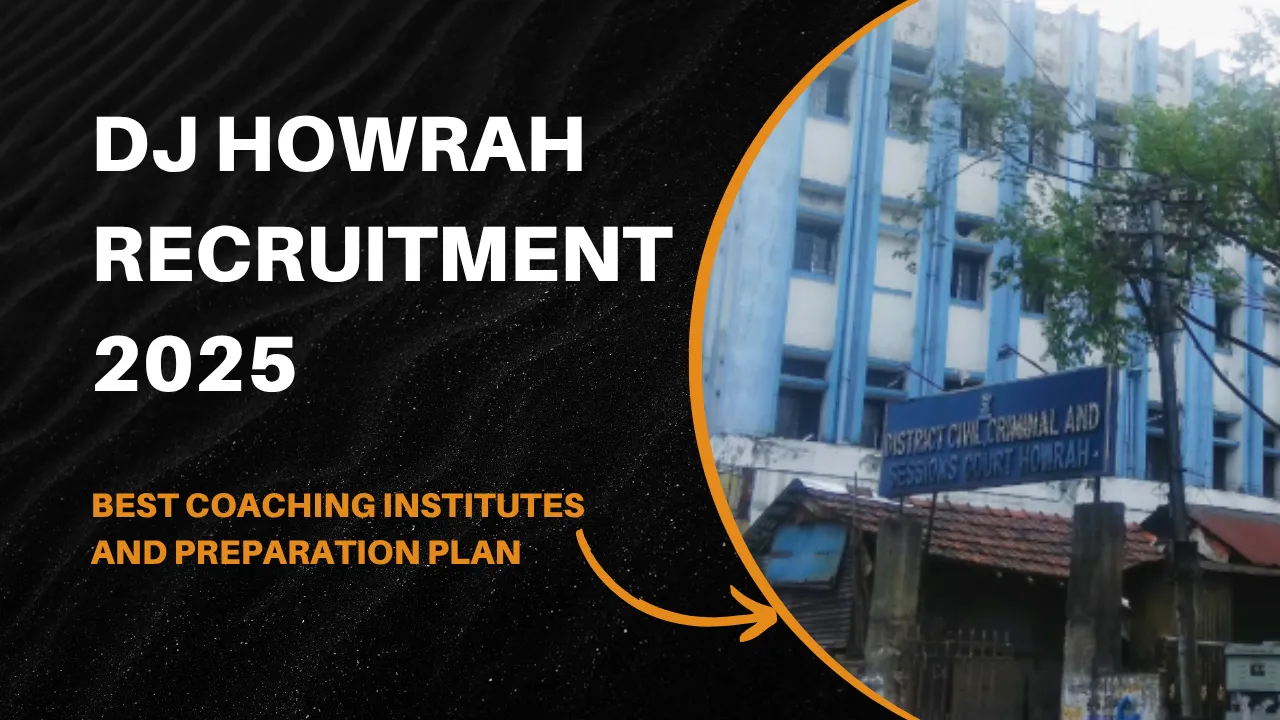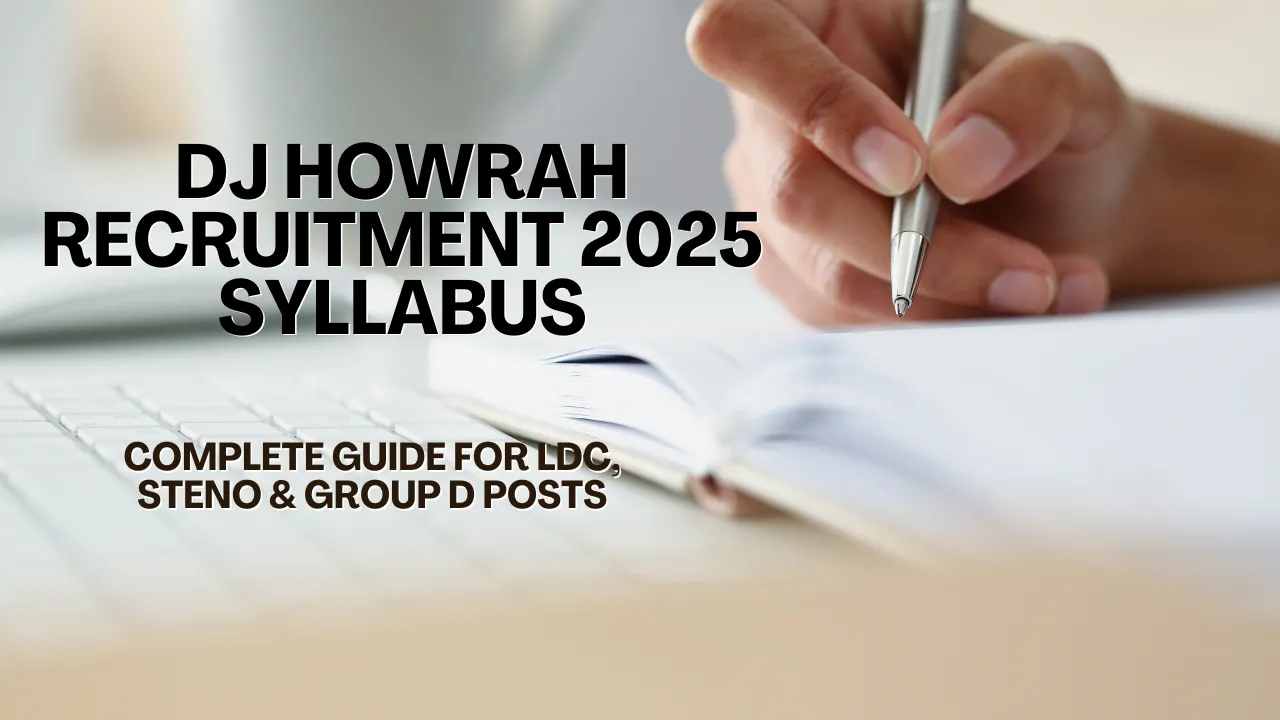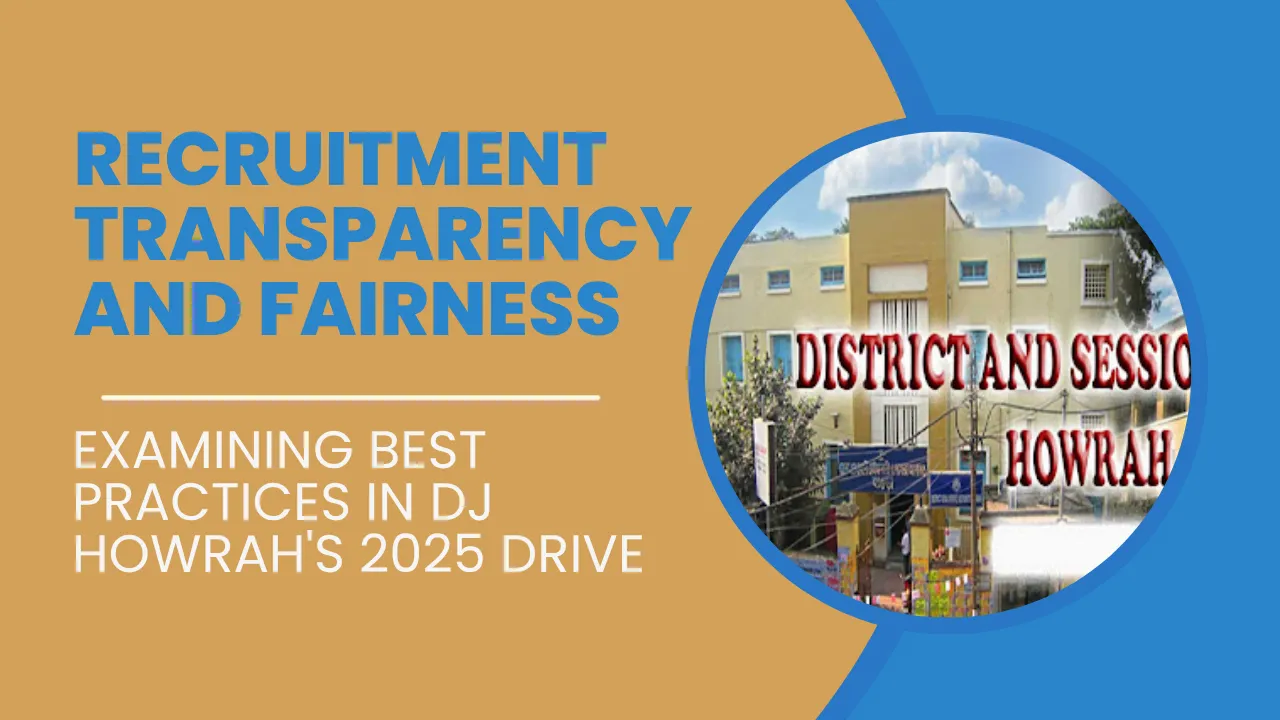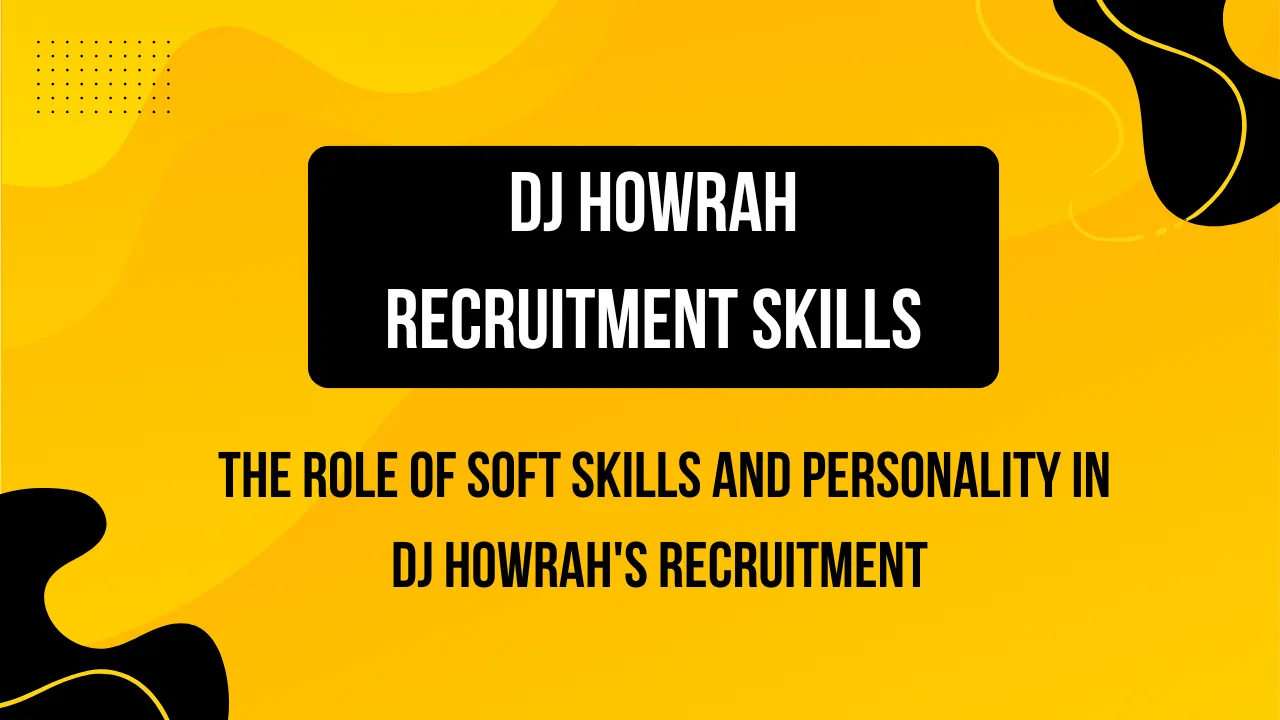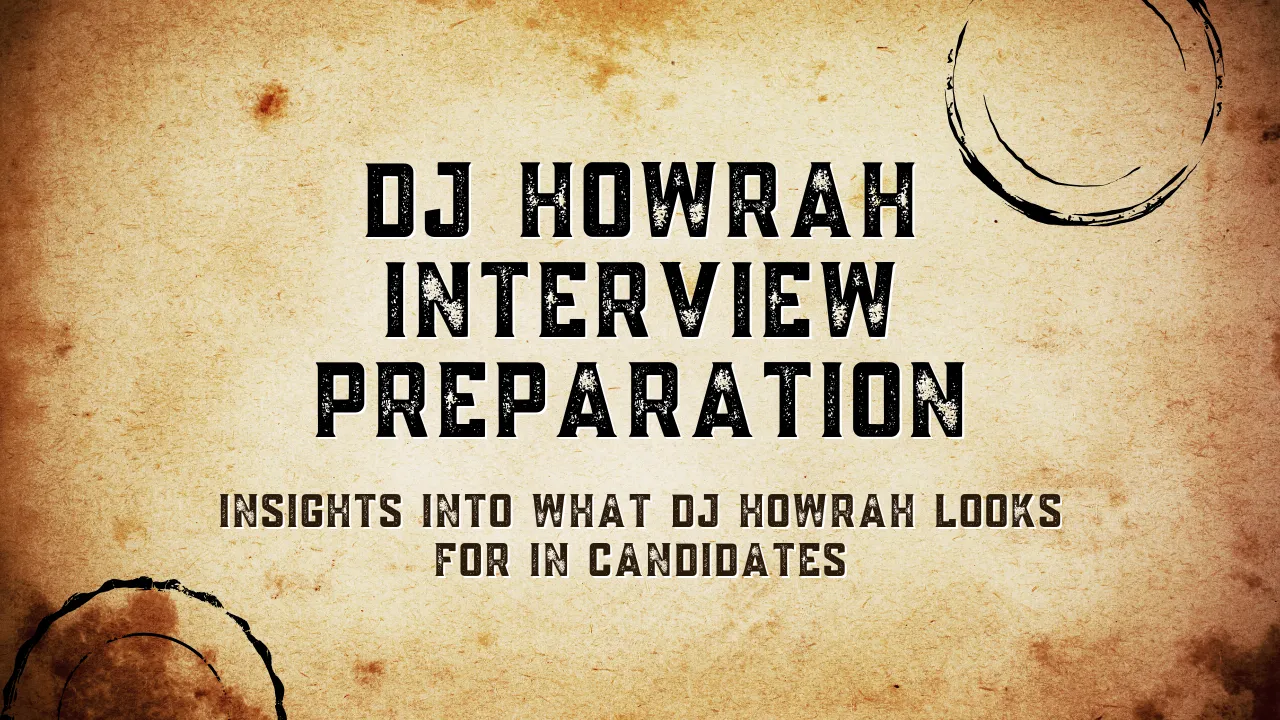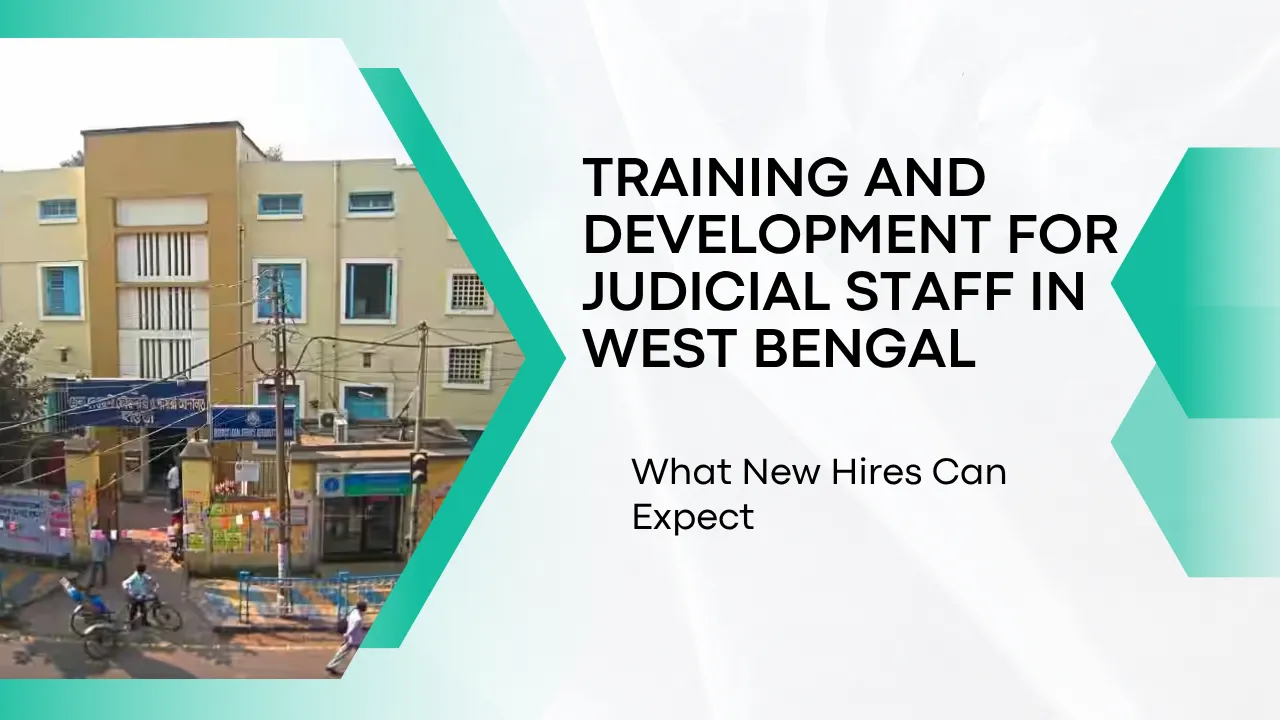Skills Needed for DJ Howrah Recruitment 2025: Securing a position through the DJ Howrah Recruitment 2025 process is a great opportunity for individuals seeking a stable government job in the judicial system. However, to stand out in a competitive field, candidates must do more than just show up with basic knowledge. Success in these roles—whether it’s for Lower Division Clerk (LDC), Stenographer, Group D, or other posts—demands a diverse and practical skill set.
This recruitment process tests a candidate’s cognitive ability, technical proficiency, and interpersonal strengths. Each stage, from the written exam to the skill test and final interview, is designed to evaluate whether an applicant can handle the responsibilities of a judicial staff role. Understanding the Skills Needed for DJ Howrah Recruitment 2025 is key to preparing effectively and increasing your chances of selection.
Skills Needed for DJ Howrah Recruitment 2025
The DJ Howrah Recruitment 2025 requires candidates to be proficient in three major categories of skills: academic/cognitive, technical/vocational, and soft skills. These are assessed through different phases of the recruitment—written exams, skill tests, and personal interviews. Developing strength in each of these areas will help candidates excel at every stage and perform effectively in the job once selected.
Overview Table: Skills Needed for DJ Howrah Recruitment 2025
| Skill Category | Skills Assessed | Importance |
| Academic/Cognitive | Logical reasoning, math aptitude, language skills, general awareness | Crucial for written exam success |
| Technical/Vocational | Typing speed, shorthand, MS Office, data entry, file management | Essential for clerk, stenographer, and support roles |
| Soft Skills | Communication, professionalism, attention to detail, integrity, teamwork | Vital for interviews and workplace effectiveness |
I. Core Academic and Cognitive Skills
Logical and Analytical Thinking
A foundation in problem-solving and reasoning is essential. Candidates must be able to understand patterns, interpret data, and make informed decisions—especially for reasoning-based questions in the exam.
Quantitative Aptitude
Basic arithmetic and numerical reasoning are tested heavily. Speed and accuracy in solving mathematical problems involving percentages, time-distance, profit-loss, and ratios are vital for scoring well.
Language Proficiency (English and Bengali)
As judicial communications are done in both English and Bengali, fluency in reading comprehension, grammar, vocabulary, and written expression in both languages is necessary.
General Awareness
Candidates should be up to date with national and state current affairs, historical facts, civic knowledge, and government schemes. This demonstrates awareness and preparedness to work in a public institution.
II. Technical and Vocational Skills
Typing Skills
Typing accuracy and speed (typically 35–40 words per minute) are essential for LDCs and clerical roles. Regular practice with typing software in both English and Bengali is highly recommended.
Shorthand Proficiency
For stenographers, the ability to take fast dictations and accurately transcribe them is a mandatory skill. The expected shorthand speed is generally 80–100 words per minute.
Computer Literacy
Basic proficiency in MS Word (document editing, formatting), MS Excel (tables, formulas), and internet usage (emailing, browsing, uploads) is critical. Candidates must also be comfortable with data entry tasks.
File and Document Management
Understanding how to properly organize, store, and retrieve physical and digital records is important, especially for clerical roles. This includes indexing files and maintaining confidentiality.
III. Soft Skills for Workplace Success
Communication Skills
Clear verbal and written communication in both English and Bengali helps with day-to-day interactions. Good listening and speaking abilities ensure smooth operations in a judicial environment.
Professionalism and Courtroom Etiquette
Respectful behavior, appropriate dress, punctuality, and adherence to official norms reflect positively on a candidate’s professional image.
Integrity and Honesty
Working in a court means handling sensitive data and documents. The ability to be trustworthy, discreet, and morally upright is non-negotiable.
Attention to Detail
Errors in legal documents can lead to serious consequences. Meticulous attention during data entry, document preparation, and typing is highly valued.
Time Management
Meeting deadlines and prioritizing tasks without supervision is key, especially in a fast-paced legal environment.
Adaptability
Courts are evolving with new technologies and changing processes. Being flexible, willing to learn, and ready to take on new challenges is necessary.
Team Collaboration
You’ll often work in coordination with other staff and officers. Being cooperative and contributing positively to a team enhances overall productivity.
Stress Management
Judicial roles can involve pressure, especially during hearings or urgent case proceedings. Staying calm and focused under pressure is an asset.
Public Service Commitment
A desire to serve the public and ensure justice is carried out efficiently helps build purpose and drive in the role.
Tips to Build and Strengthen These Skills
- Daily Practice: Dedicate time to solve aptitude questions and language exercises.
- Typing Drills: Use online platforms to measure and improve typing speed.
- Mock Tests: Take regular practice tests to simulate exam pressure.
- Shorthand Practice: Use dictation videos or apps to build speed and precision.
- Computer Courses: Enroll in short MS Office and typing programs.
- News Reading: Follow daily newspapers and current affairs for general awareness.
- Interview Prep: Join mock interview sessions to improve confidence and communication.
- Soft Skill Workshops: Attend training that enhances collaboration and stress management.
FAQs
1. What typing speed is required for DJ Howrah clerk roles?
A speed of 35–40 words per minute in English with high accuracy is generally required.
2. Are shorthand and typing both necessary for all posts?
No. Shorthand is mainly needed for stenographer roles, while typing is essential for clerical positions.
3. What kind of questions are asked in the general awareness section?
Topics may include current events, Indian Constitution, government schemes, history, geography, and important dates.
4. Can I apply without computer certification?
You don’t need a formal certification, but you must demonstrate working knowledge of MS Word, Excel, and email usage.
5. Is there a physical test for DJ Howrah recruitment?
For most clerical and stenographer posts, there’s no physical test—only written exams, skill tests, and interviews.
Final Thought
Mastering the Skills Needed for DJ Howrah Recruitment 2025 is not just about passing an exam—it’s about preparing to serve in one of the most trusted institutions in our society. Whether it’s developing quick thinking for logical reasoning or improving your typing for accurate court documentation, every skill you invest in brings you closer to a secure and respected career.
Start today. Practice regularly. Stay informed. Build your confidence. If you’re serious about securing your spot in the DJ Howrah Recruitment 2025, focus on holistic preparation and keep your goals in sight.
Good luck! Now go sharpen those skills—and make your application count.

